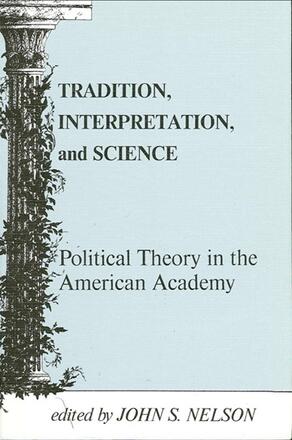
Tradition, Interpretation, and Science
Political Theory in the American Academy
Alternative formats available from:
Description
This book reassesses the academic field of political theory and brings into sharp relief its problems and opportunities. Here for the first time, diverse theorists coordinate their arguments through a common focus. This focus is the writing of John G. Gunnell.
Gunnell attacks a set of myths said to plague almost every recent theory about politics: the myth of the given, the myth of science, myths of theory, the myth of tradition, and the myth of the political. He argues that these all alienate political theory from substantive inquiry and actual practice.
Contributors include Richard E. Flathman, Russell L. Hanson, George Kateb, Paul F. Kress, J. Donald Moon, John S. Nelson, J. G.A. Pocock, Herbert G. Reid, Ira L. Strauber, Nathan Tarcov, and Sheldon S. Wolin. They respond on behalf of projects in the new history of political theory, epic theory, phenomenology, traditional theory, and political deconstruction. These discussions also address the theories of Hans-Georg Gadamer, Jürgen Habermas, Karl Marx, Leo Strauss, Alain Touraine, and Ludwig Wittgenstein.
At the conclusion of the volume, Gunnell reconsiders his arguments in light of the respondent's remarks. His challenges thus provide a series of confrontations – both exciting and provocative – among major theorists. The result is a lively debate about what political theory is, how it relates to political history and practice, and how it involves epistemology. The authors probe a broad range of questions about practices of politics and traditions of discourse, and they identify priorities for the future of the field.
John S. Nelson is Associate Professor of Political Theory and Co-Director of The Rhetoric of Inquiry Project at the University of Iowa. His book, What Should Political Theory Be Now?, was also published by SUNY Press.